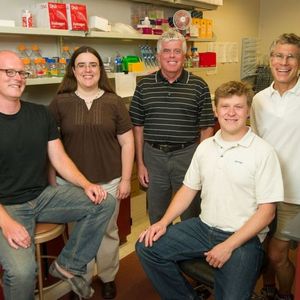CSU researchers to study cyanobacteria in various PBR strategies

Photo: Colorado State University
July 18, 2013
BY Colorado State University
An interdisciplinary team of Colorado State University researchers has received a $2 million National Science Foundation grant to research new routes to the sustainable production of biofuels using photosynthetic bacteria.
“The purpose of this basic research is to help solve important practical problems,” said Kenneth Reardon, Jud and Pat Harper Chair and professor of Chemical and Biological Engineering at CSU and site director for the Colorado Center for Biorefining and Biofuels, who is serving as principal investigator on the grant. “Current biofuel production processes, based on algae, have been too expensive to scale up to commercial size. The team will be researching ways to increase the productivity and sustainability of the cultivation of photosynthetic microbes for greater yields of targeted molecules.”
In addition to Reardon, the CSU team includes faculty members from the departments of Chemical and Biological Engineering, Mechanical Engineering, and Biology: Thomas Bradley of Mechanical Engineering; David Dandy and Christie Peebles of Chemical and Biological Engineering; and Graham Peers from Biology.
Advertisement
The grant addresses photosynthetic biorefineries, one of three research areas targeted by the NSF through its Emerging Frontiers in Research and Innovation program. The CSU research will be centered on cyanobacteria, blue-green bacteria that will be modified to convert carbon dioxide into hydrocarbons, similar to those in petroleum, through photosynthesis.
The team’s four-year research project will examine five areas of the biofuel production process. In addition to engineering cyanobacteria that can grow faster in a wide range of industrial conditions, the CSU researchers will explore how exposure to light in a variety of settings affects the growth rate and yield of the bacteria; create computer models that predict the light exposure in specific cultivation systems; develop a method to efficiently harvest the cyanobacteria from the culture; and, most importantly, develop new life-cycle analysis approaches that will allow accurate modeling of the productivity of large-scale reactors.
The team will build small-scale models of different photobioreactor (PBR) strategies in CSU labs to model the large-scale production reactors and research the physiological response of cyanobacteria to PBR conditions.
Advertisement
“We are using a systems approach to the production of biofuels,” Reardon explained. “We need to use resources efficiently to make the process sustainable as well as economically feasible. We want to come as close as possible to zero emissions of greenhouse gases.”
In addition to increasing the speed of production, yields, and sustainability of biofuel production, the CSU team anticipates that the engineered strains of cyanobacteria and the approaches developed in this project will aid in future research and production of biofuels and biochemicals.
The team will not only train PhD and undergraduate students through this research but also mentor K-12 students in such topics as metabolic engineering and photosynthetic microorganisms.
Related Stories
The USDA’s National Agricultural Statistics Service on June 30 released its annual Acreage report, estimating that 83.4 million acres of soybeans have been planted in the U.S. this year, down 4% when compared to 2024.
SAF Magazine and the Commercial Aviation Alternative Fuels Initiative announced the preliminary agenda for the North American SAF Conference and Expo, being held Sept. 22-24 at the Minneapolis Convention Center in Minneapolis, Minnesota.
Scientists at ORNL have developed a first-ever method of detecting ribonucleic acid, or RNA, inside plant cells using a technique that results in a visible fluorescent signal. The technology could help develop hardier bioenergy and food crops.
The 2025 International Fuel Ethanol Workshop & Expo, held in Omaha, Nebraska, concluded with record-breaking participation and industry engagement, reinforcing its role as the largest and most influential gathering in the global ethanol sector.
TotalEnergies and Quatra, the European market leader in the collection and recycling of used cooking oil, have signed a 15-year agreement beginning in 2026, for the supply of 60,000 tons a year of European used cooking oil.
Upcoming Events










